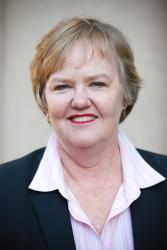

2:00 pm EST - 3:30 pm EST
Past Event
2:00 pm - 3:30 pm EST
1775 Massachusetts Ave., NW
Washington, DC
In many situations of armed conflict, humanitarian aid organizations are prevented from providing assistance and protection to civilians in need. Sometimes the aid groups are blocked by authorities, sometimes by non-state actors. Humanitarian agencies must often grapple with finding a balance between ensuring the security of their staff and taking the necessary risks to access vulnerable people or communities in greatest need.
On February 15, the Brookings-Bern Project on Internal Displacement hosted a discussion to explore the challenges of access during humanitarian crises. Ambassador Claude Wild with the Swiss Federal Department of Foreign Affairs offered introductory remarks from the perspective of a government that has emphasized the importance of ground-level humanitarian engagement and has worked to address the critical issue of access. Representatives from the United Nations, the International Committee of the Red Cross, the International Rescue Committee, and the Afghan Ministry of Foreign Affairs offered their perspectives on the challenges of protecting and assisting vulnerable people when access is difficult—or impossible.
Senior Fellow Elizabeth Ferris, co-director of the Brookings-Bern Project on Internal Displacement, moderated the discussion. After the program, the panelists took questions from the audience.


George Ingram, Anthony F. Pipa
July 10, 2025

William A. Galston
July 2, 2025

Elaine Kamarck
July 2, 2025